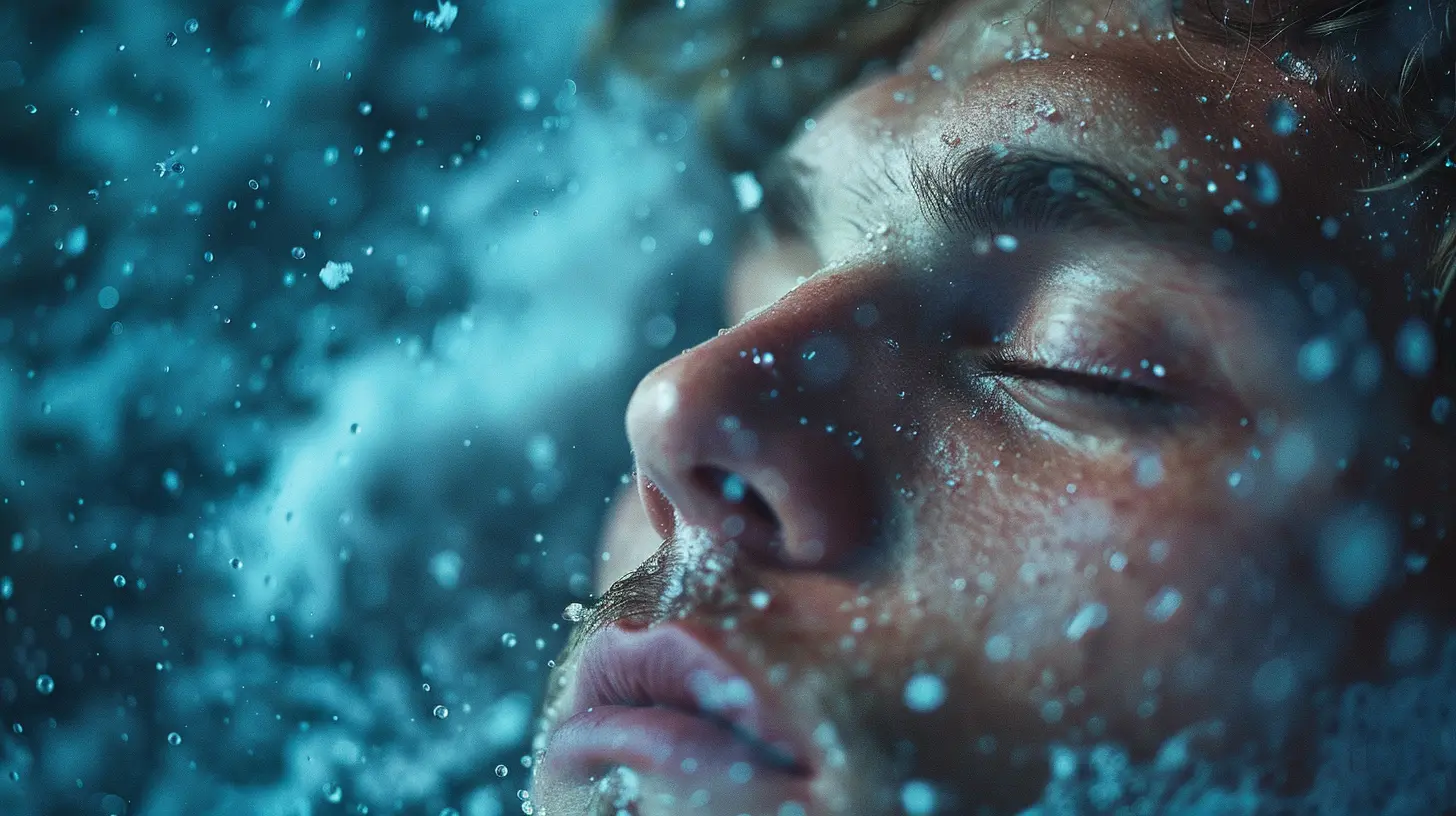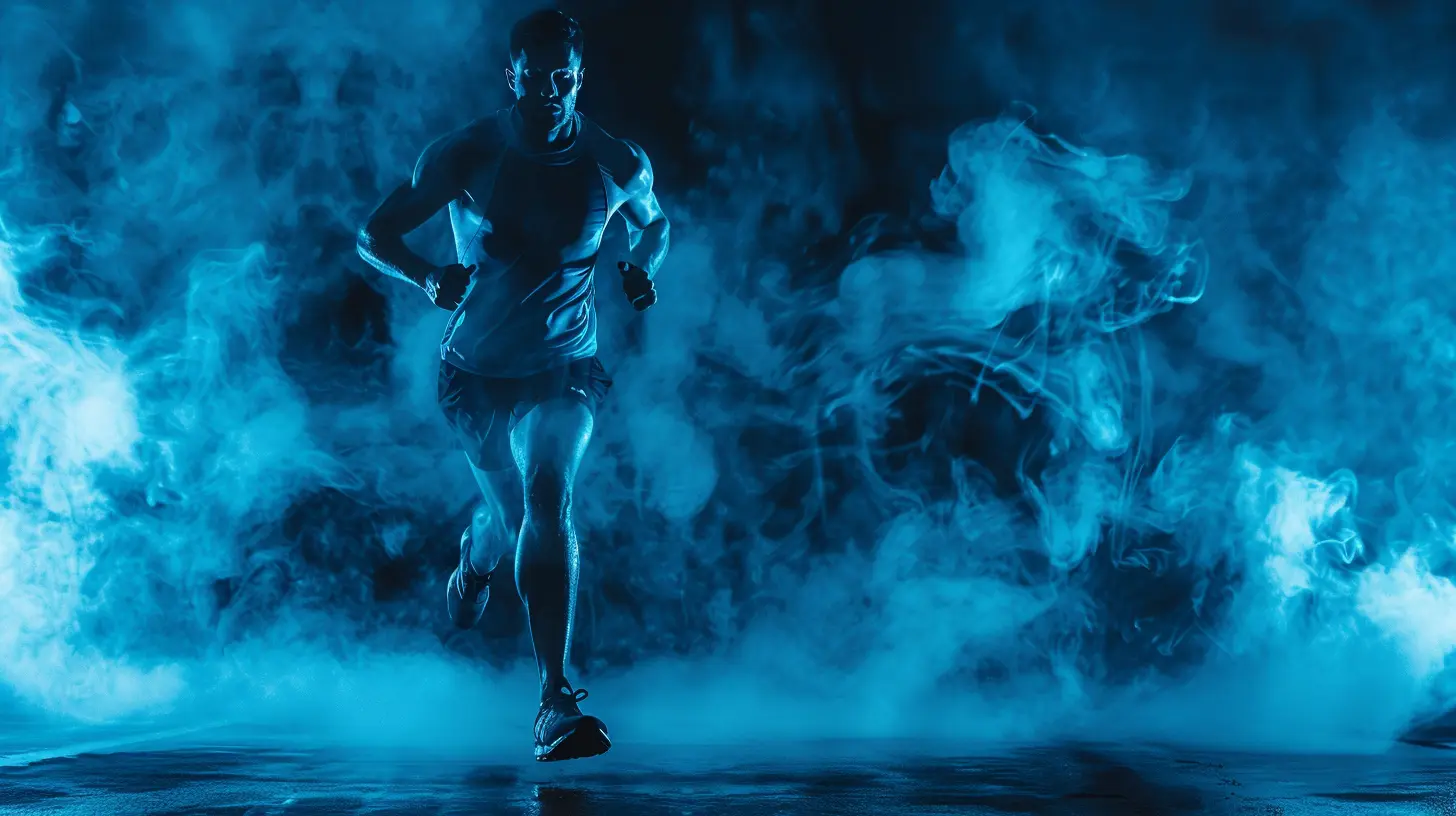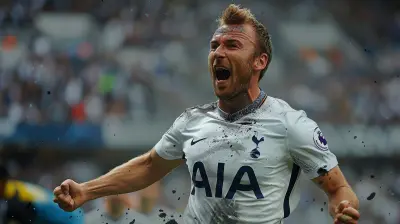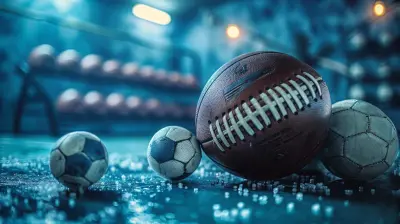The Role of Sleep in Athletic Performance and Recovery
12 September 2025
Let’s be honest—when we think about getting better at a sport or pushing harder in the gym, most of us jump straight to training plans, protein shakes, and maybe even expensive gear. But what if I told you one of the most powerful tools for boosting athletic performance and speeding up recovery requires zero expense—just a pillow and a quiet room?
Yeah, we’re talking about sleep. Not the kind where you snooze through Netflix episodes, but real, deep, high-quality sleep. It's probably the most underrated aspect of an athlete’s regimen. Whether you're a weekend warrior, a high school prodigy, or a pro athlete, hitting your sleep goals could be the real game-changer you're missing.
So, let's dive into the magical world of sleep and see how it affects everything from muscle growth to reaction times. I promise—it’s not just about feeling rested; it’s about unlocking your physical potential.
Why Sleep is So Important for Athletes
Picture this: you're a high-performance engine. Training hard? That's revving the engine to the max. But sleep? That’s your pit stop. Miss too many pit stops, and even the best engine will break down. Sleep is where your body and brain do all the behind-the-scenes heavy lifting.Physical Recovery Happens During Sleep
When you sleep, your body gets to work on repair mode. Think of it as a cleanup crew that only clocks in after you’re out cold.- Human Growth Hormone (HGH) is released during deep sleep. This hormone is essential for tissue growth and muscle repair. Without enough deep sleep, the levels of HGH dip—and so does your ability to recover.
- Soft tissue repair, muscle regeneration, protein synthesis—all of these happen while you're catching zzz’s.
- The immune system also kicks into high gear. It fights off inflammation, heals sore muscles, and preps you for your next workout.
Mental Recovery Matters Too
Sports aren't just physical. There's a huge mental component—strategy, focus, motivation. Sleep improves cognitive function, which means faster reaction times, better decision-making, and improved accuracy.Ever been cranky, distracted, or just "off" during a workout? Chances are you're sleep deprived.
The Science Behind Sleep and Performance
Let’s get a little nerdy for a second (don’t worry, I’ll break it down).Stages of Sleep
Every night, your body cycles through different stages of sleep:1. Light Sleep – helps with motor skill learning and prepping the brain for deep sleep.
2. Deep Sleep (Slow-Wave Sleep) – where muscle recovery and cell repair happen.
3. REM (Rapid Eye Movement) Sleep – critical for memory consolidation, creativity, and learning.
Each stage plays a unique role in helping athletes recover and improve. Skip out on any of these stages—even unintentionally—and your performance might take a nosedive.
Sleep Deprivation and Athletic Performance
Here’s where things get ugly. Skimping on sleep can wreak havoc:- Reaction time can slow down by as much as 300%.
- Accuracy and focus drop—terrible news for anyone who plays precision-based sports like basketball or tennis.
- You’re more prone to injuries. Tired bodies don’t respond well to stress or instability.
- Mood crashes. Motivation tanks. You start skipping sessions. Momentum breaks—see where this is going?
A study published in the Sleep journal found that athletes who improved their sleep to 9–10 hours per night showed faster sprint times, better shooting accuracy, and improved mental well-being. That’s no coincidence.
Real-Life Examples: Sleep Wins Championships
LeBron James
LeBron reportedly sleeps up to 12 hours a day. It’s no shock he’s had such longevity in the NBA. His sleep isn’t a luxury—it’s part of his performance toolkit.Tom Brady
Another icon who takes his sleep seriously. Brady follows a strict sleep routine, aiming for 9 hours a night. His TB12 method even includes techniques for better sleep hygiene.Usain Bolt
Yes, the fastest man on earth has famously said, “Sleep is extremely important to me—I need to rest and recover in order for the training I do to be absorbed by my body.”If that doesn’t drive the point home, nothing will.
How Much Sleep Do Athletes Really Need?
The average adult needs around 7–9 hours a night. Athletes? They often need more. Think:- 8 to 10 hours for optimal recovery
- Naps of 20–30 minutes during the day (especially if you wake early to train)
Young athletes, like teens or college sports players, may need even more since their bodies are still developing.
Sleep Debt is Real
Can you “make up” for lost sleep? Sort of, but not really. Chronic sleep deprivation builds up like a debt bank. You can pay a little back, but it doesn't undo all the damage. The key is consistency.Tips for Improving Sleep Quality for Better Performance
Alright, so how do you start sleeping like a world-class athlete? Here’s your playbook.1. Create a Sleep Routine
Go to bed and wake up at the same time every day—even on weekends. It trains your body’s internal clock, making quality sleep easier.2. Cut Screens Before Bed
Phones, laptops, and TVs emit blue light, which messes with melatonin production (your body’s natural sleep hormone). Try shutting down devices at least an hour before bed.3. Cool, Dark, and Quiet
Set your bedroom up like a cave—cool (about 65°F / 18°C), dark, and silent. Use blackout curtains or a sleep mask if needed. And if noise is an issue, try a white noise machine or earplugs.4. Avoid Heavy Meals and Caffeine Late in the Day
Eating or drinking too close to bedtime can disturb your sleep. Avoid caffeine after 2 p.m. and keep nighttime snacks light and healthy.5. Include Relaxation Techniques
Try deep breathing, meditation, or even just reading a book before bed. It helps your muscles and brain shift into sleep mode.The Athlete’s Sleep Checklist
Here’s a quick breakdown you can screenshot or save:- ✅ 8–10 hours of sleep per night
- ✅ Consistent sleep schedule
- ✅ Screen-free wind-down hour
- ✅ Cool, dark, quiet bedroom
- ✅ Strategic napping (20–30 minutes max)
- ✅ Limit caffeine/alcohol
- ✅ Pre-bed relaxation rituals
- ✅ Avoid overtraining late at night
What Happens When You Prioritize Sleep?
It sounds too good to be true, but here’s what better sleep can bring:- Increased endurance
- Improved accuracy and performance
- Faster recovery time
- Lower injury risk
- Better mood and motivation
- Enhanced memory and learning of plays or techniques
It’s like upgrading your body’s software overnight—literally.
When Sleep Isn't Easy: Common Challenges for Athletes
Not everyone falls asleep as soon as their head hits the pillow. Athletes face unique challenges, like:- Travel schedules and time zone changes
- Pre-game nerves or adrenaline
- Overtraining syndrome
- Academic stress for student-athletes
If you're struggling, don’t ignore it. Speak to a sports psychologist or sleep specialist. You’d see a coach for a sore knee—why not for a tired brain?
Final Thoughts: Make Sleep Your Secret Weapon
If you're serious about athletic success, you can’t overlook sleep. It’s not lazy. It’s not wasting time. It’s training—just the kind that happens under the covers.So instead of squeezing in another late-night workout or binge-watching until 2 a.m., try giving your body what it really needs. Because when you rest better, you train better. And when you train better, you perform better.
Simple as that.
all images in this post were generated using AI tools
Category:
Sports MedicineAuthor:

Preston Wilkins
Discussion
rate this article
1 comments
Jaxon Lawson
Sleep isn't just a luxury; it’s a competitive edge! So, if you think you can skip Z's and still win, good luck—enjoy that bench!
September 23, 2025 at 4:11 AM

Preston Wilkins
Absolutely! Quality sleep is crucial for peak athletic performance and recovery—it's not just rest, it's a game changer!


